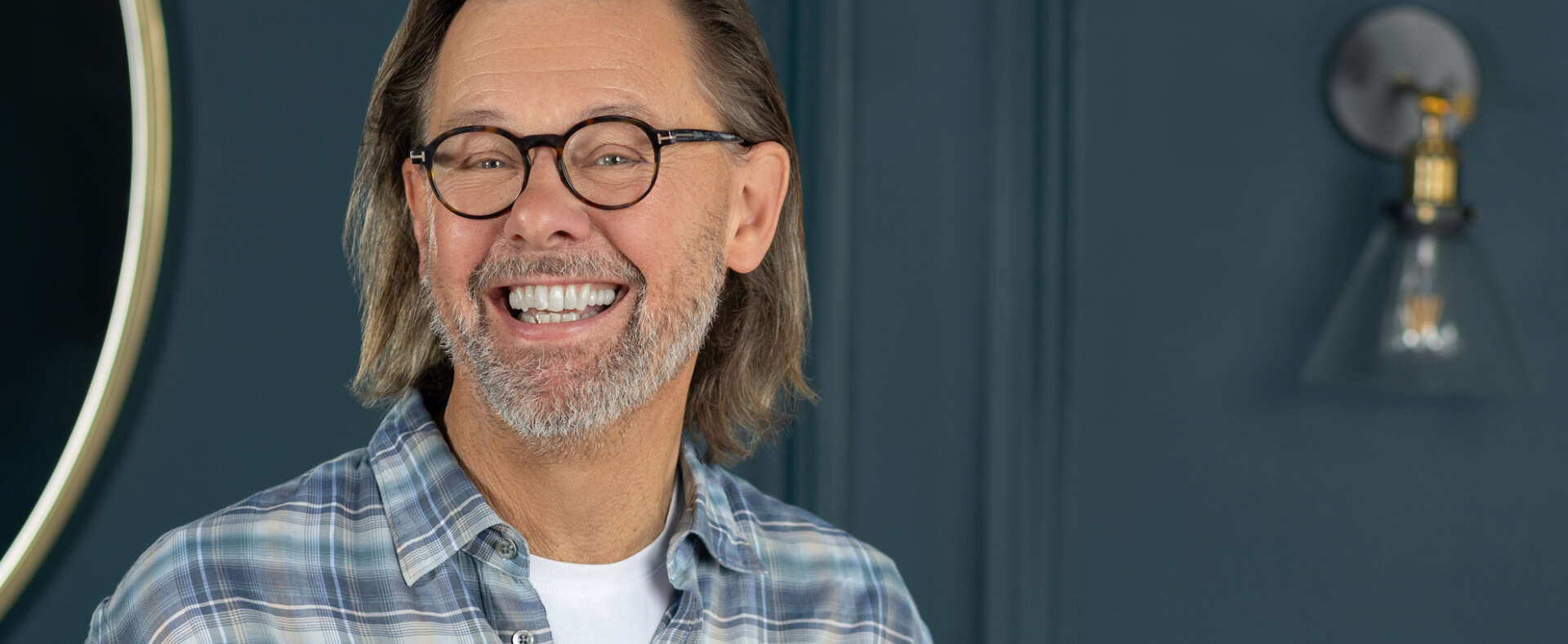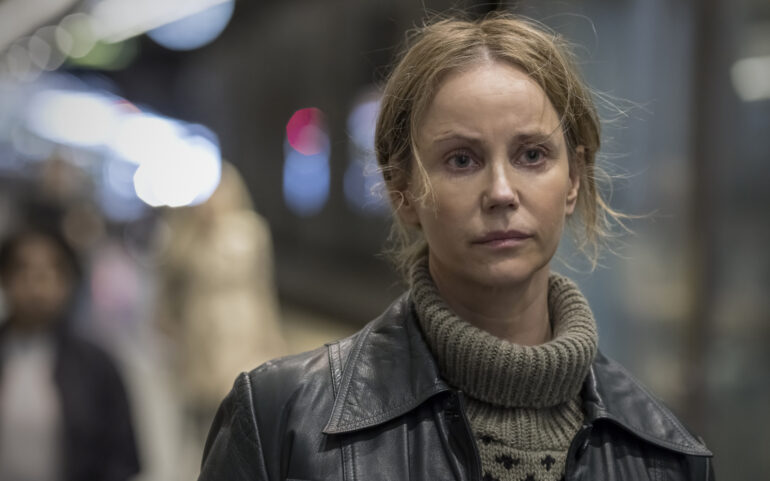
MIPCOM - The well-known Swedish TV executive who works as global head of scripted content at Banijay Group, tells us about his vision.
Wikander has an extensive knowledge of the scripted space, having worked most recently as commissioning editor & VP, original programming for HBO Max Nordic [now Warner Bros.Discovery’s Max]. Earlier roles include managing director of Twelve Town in London and SVT Head of Drama. At Banijay, he oversees more than 50 drama labels across the world.
He spoke to us ahead of his panel on Monday at Cannes MIPCOM’s Seaview Producers’ Hub, where he will discuss Banijay’s scripted success alongside Alexia Laroche-Joubert, CEO Banijay France and Dominique Farrugia, MD Shine Fiction.
You’ve been in your job for less than a year. How has been the learning curve of being part of one of the world’s biggest indie content groups?
Christian Wikander: Yes I started only in May! It’s a big and exciting role. To begin with, I wanted to meet as many producers and labels as possible and therefore travelled extensively the first three months. I went from New Zealand, to India, although our main business is in Europe. I had a bunch of questions to all producers about their challenges, strengths and learnings, to get a broad picture.
The one I got is that there is a lot of talent out there, a lot of energy. The passion of telling stories is amazing! As we’re in a global business, there are lots of shared challenges.
Also, coming from a US company, I’ve experienced a different kind of managerial structure. Instead of top-down management, at Banijay the producers are the kings and queens and we at the central scripted team, are there to assist them. Talent as a whole is the fuel of our business.
Today what is the share of scripted in Banijay’s overall turnover?
CW: Scripted format is still a small part of our business but I see this growing going forward. Last year we launched 130 scripted titles and 70% were non-English. This shows how truly global our footprint is. We are everywhere where stories can grow and make a real impact.
Steve Matthews who was at HBO Europe - perhaps working with you there - has joined your division in the newly created role of content partnerships exec. Can you explain exactly how you collaborate and who are your other main collaborators in your central scripted department?
CW: Steve is one of the most brilliant content executives I’ve ever worked with when it comes to identifying strengths and weaknesses within a story. He joined Banijay a few months before I did. Currently he focuses on the Nordics and Spain. His role is to offer support to our producers, like the rest of our central team. This can range from developing a pitch, document, to drafting a script.
The rest of our central scripted department consists of Sara Wills[Senior Global Content Development Manager] who is the first point of contact for producers. She is involved in strategy on our own formats. Then Denis Leroy [Senior Director, Scripted, Banijay & Head of Scripted Formats, Literary Rights and New Projects, Banijay France] is scouting third party projects. We also work tightly with Frédéric Balmary [Chief Business Officer].
Acquisitions have been a way for Banijay to secure access to strong national brands and to consolidate its scripted portfolio. Where do you see most growth potential around the world?
CW: May I say everywhere? I did not come back from my world trip saying-hum this is a place where nothing is happening. For instance, Pokeepsie Films in Spain who did 30 Coins for Max are amazing. They are specialising in horror. Another interesting company is Grøenlandia in Italy. They come very much from the feature film side. This is an area that we are focusing on as well as streamers have a strong appetite for this format.
In the UK, we just concluded a deal with actor James Norton’s Rabbit Track Pictures. This is an example of how we always try to offer a home for great talent. A lot of actors/creators have different roles in different contexts.
What about in the Nordics?
CW: Rubicon is delivering fantastic content such as Netflix’ upcoming Billionaire Island from the creators of Beforeigners
and Lilyhammer. This new show has a unique universe and commentary on Norwegian society. From Filmlance we have the TV4’s crime drama Fallen, where Bron [The Bridge]’s screenwriter Camilla Ahlgren meets Sofia Helin. Then Endemol Shine Finland has delivered the Netflix show Dance Brothers which has a very brave and unique way of telling a story in a world that is relevant but rarely seen on screens. Jarowskij is also a very strong and active scripted label. In Finland they have a new exciting crime show, Murder in Hanko.
Today global platforms are more open to split-window deals, and broadcasters are aggressively sealing new co-production partnerships to deliver ambitious drama. This must be good news for Banijay which has the clout to deliver the kind of high-end content those customers are looking for?
CW: Yes it is. In the Nordics, co-production has always been in our DNA. We are obviously going back to this. With that comes opportunities to be part of the exploitation of rights. There has been a long period where it wasn’t on the table. But again, with this comes the challenge of finding extra coin to close the financing. This is where being part of the Banijay family is an upside. You don’t have to go to another territory and reach out to potential buyers. Through the Banijay producers, you can find other venues for potential co-productions.
How do you use the Banijay Script Fund to lift certain projects? Can you give examples?
CW: It’s an add-on, a tool for producers, to help them boost a project and ideally expand their footprint. We can help them bid for a big IP, make a deal with an A-list talent, achieve a collaboration between two labels in different territories where they want to do a co-development deal, strengthen a pitch, etc. But it’s too early to give examples.
How has the Viaplay crisis impacted your various labels?
CW: Who is not affected! It has been a challenge for all labels and created an extra layer of projects on the market. That said, great Viaplay series are coming such as the much-anticipated Ronja the Robber’s Daughter from Filmlance.
Do you see any trends on the scripted market: Is it genre-driven?
CW: Yes it is. At a time when people refocus on the local market and each title needs to work on its own merit, a lot of commissioners are held accountable for each greenlight, which wasn’t really the case a few years ago. That leads into the mainstream, as people become risk-averse. So genre content that has a wide fan base crossing gender and age groups, is very popular, as well as the usual action, thriller, crime dramas. But I feel that there is more room for drama, especially from a local perspective where you can reflect on what our society is about.
What current series across your labels have strong remake potential?
CW: Well Bron continues to be appealing, and we have a new version about to be signed. The Dutch format Penoza [remade in Sweden into Gåsmamman] is still doing well and the producers behind the show NL Film have a new series called Anonymous which has great adaptation potential. The Spanish thriller La Caza. Monteperdido from DLO Producciones, commissioned for a fourth season, has recently been remade into the French show Rivière-Perdue. So a lot of IP is travelling well.
Artificial Intelligence is the hot conversational topic in the industry and Banijay has launched in August an AI Creative Fund to boost TV format development. In the scripted space, have you or will you use generative AI?
CW: The upside of AI is in pre and post-production and this is an area where it is present today. AI is a tool that we need to be aware of. But idea creation, development is human-driven. Also, when you look at the output from AI, you see that it reflects a lot of white middle-aged men like myself, instead of being a modern ESG [Environmental, Social and Governance] forward-looking contributor to storytelling. It’s an importance perspective to have.
